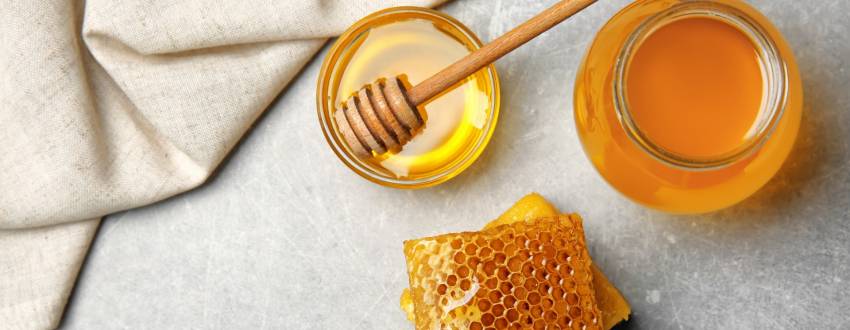If you eat honey as your health food, what do you eat as your junk food?
Honey has this halo of being considered a “healthy food.” What makes a food healthy? The working definition that I like to use is that for a food to be healthy, it must provide health benefits. Pretty simple, no?
There are four parameters that we can look at to simply identify a food that delivers essential nutrients to our bodies. The first and most basic measure of a food’s use is energy, which we measure by the unit called calorie. Does that term sound familiar? Energy, though essential to our health, is generally consumed in excess in the American diet and is thus in a separate category to other essential nutrients. Therefore, one in search of a healthy diet will usually focus on whether a food contains vitamins, minerals, and hydration.
In addition, there is a lower limit as to the amount of “health benefit” that a food has to provide in order for it to be considered healthy. Then, that magical measure should also be compared against the health risks of eating said food. Perform a cost-benefit analysis, and voila, out comes the answer whether a food is, actually, a healthy food.

Alas, most of us don’t actually perform complicated math equations before putting food into our mouths. But we can learn some basic nutrition to help us out.
Let’s do a quick analysis following the above steps.
About one tablespoon of honey provides 60 calories of energy to the body. The 60 calories reflect 16 grams of carbohydrates, none of which is fiber. There are also no vitamins or minerals present according to the USDA food analysis database, and three grams of water, which equals about half a teaspoon. To put these numbers in context, one cup of sliced apple with the peel (the size of a small apple) provides the same 60 calories. However almost three grams of the carbohydrate content is fiber – about 10% of our daily needs. In addition, the apple contains about 1/3 cup of water, 3% of daily potassium needs and 8% of daily Vitamin C.
From this comparison, we can clearly determine that honey provides a very concentrated source of energy. Aside from the calories that honey provides, there is very little essential nutrition (micronutrients, hydration) present in honey.
I already hear the voices of dissent proclaiming- “wait, honey helps a sore throat. It is better than sugar in terms of glycemic index.” Etc. Etc. The point of this article is NOT to tell you to never eat honey, or that honey has no uses.
Rather, and for the answer to our question, it is to clarify that honey is not healthy. And yes, there is a difference between “healthy” and “healthier.”

Though there are claims that honey contains amino acids, vitamins, minerals, polyphenols, and/or antioxidants, I have not found these claims to be substantiated. Furthermore, if any nutrient is present in honey, it is present at such a low level that it fails to be nutritionally significant. The health benefits of honey are simply not strong enough to justify consuming it for health reasons.
In addition, consuming honey on the off-chance that it may be healthy is a risky business. Excess consumption of sugar is definitely linked to many poor health outcomes. Trying to pass honey off as a health food or claiming that a recipe is healthy because it has honey as an ingredient causes much more damage than simply recognizing that honey is a very delicious treat and should be treated as such.
How to use honey? Use it sparingly, as you would use sugar, it’s a very close relative.






Reviews